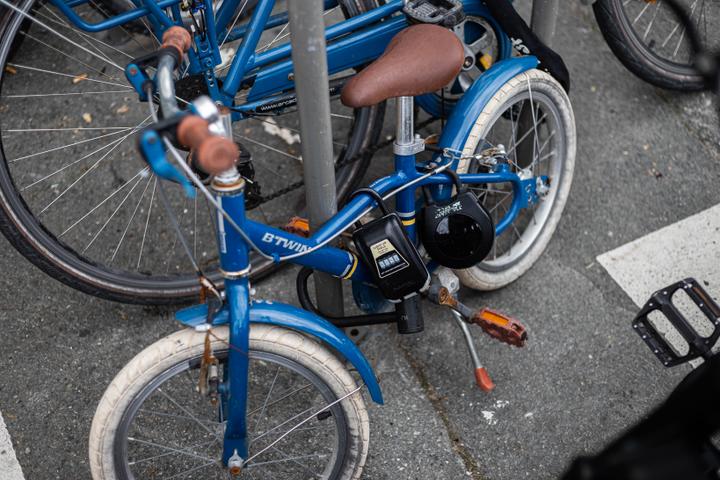The small blue bicycle is barely bigger than a balance bike. Parked at a bike rack in the port of La Rochelle, this child’s bike has become a symbol: that of the power struggle between the city hall and the tourist rental industry. Its frame is covered in key lockboxes. The owner, who runs a concierge service, moves it regularly for his clients, who pick up the key to their vacation rental from it. “I found this solution because, in some apartment buildings, key boxes are systematically torn off, and smart locks don’t fit all doors,” explains the man, who manages 27 tourist rentals in La Rochelle and also works as a real estate agent.
The city councilor publicized this little bike on her Instagram account during the summer. “It is symptomatic of a tourism model that diverts rare and precious housing from residents, and of a system that constantly tries to bypass the rules,” she observes. Recently, the owner had to retrieve his small bike from the impound lot. Its lock had been cut. An act that reflects the division among La Rochelle’s population over tourist rentals.
On one side are residents trying to regulate the system, supported by housing rights advocates, anti-noise collectives, or groups opposing the touristification of cities. On the other side are property owners who assert their right to earn this extra income or to invest in this sector, and who contribute, through their accommodation offerings and the taxes they pay, to the tourist economy. These are the terms of a debate that is only growing more bitter, as short-term rentals listed on booking platforms have never been more numerous in France. By the end of 2025, the platforms list 54,200 “active” listings (with at least one night booked or available for reservation in the month) in Paris, but also 10,700 in Marseille, 10,100 in Nice, 5,600 in Lyon, 4,500 in Toulouse…
